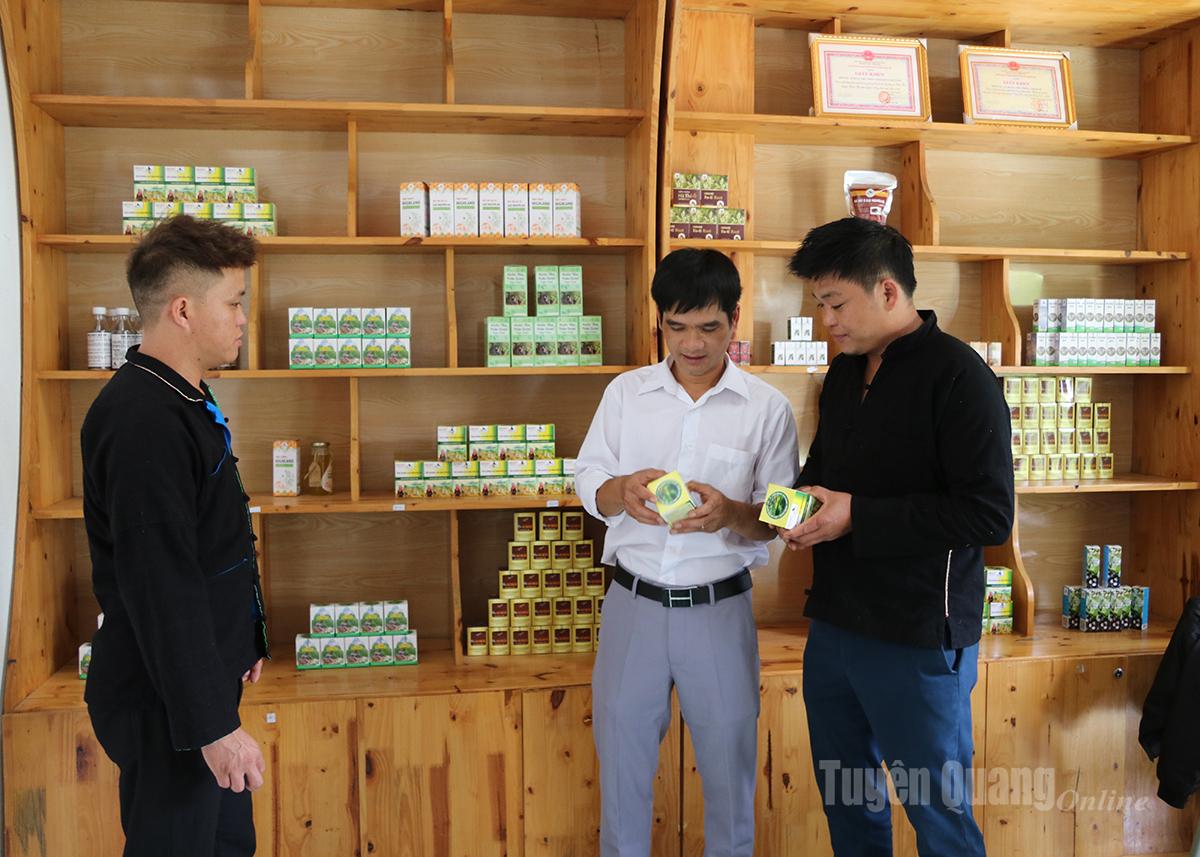Quan Ba: Renewing mindsets for economic development
Thanks to the effective implementation of Party and State support policies, the material and spiritual life of ethnic minority communities in Quan Ba commune has continuously improved. This progress stems from flexible, creative poverty reduction measures and the determination of local people to rise through labor and production.
 |
| Members of Nam Dam Community Cooperative, Quan Ba commune introduce their herbal product. |
In Dong Tinh hamlet, Vang Thong Cao of the Bo Y ethnic group boldly converted over one hectare of low-yield crops into high-value vegetables such as tomatoes, cabbage, cucumbers, and straw mushrooms, planted in staggered and off-season cycles. He also mobilized surrounding households to join in cucumber cultivation on over 10 hectares, harvesting more than 100 tons of vegetables annually and earning hundreds of millions of dong. Across the commune, nearly 350 hectares of low-yield crops have been converted, with 250 hectares under specialized vegetable production, bringing an average value of VND 72 million per hectare.
The commune has also attracted several enterprises and cooperatives to participate in production and consumption linkages. These include Que Vung Mien Cucumber Co., Ltd., which secures cucumber offtake; Nam Dam Community Cooperative, which produces and sells herbal products; Binh An General Services Cooperative, which handles honey products; and Kim Thang Cooperative, which purchases Shan Tuyet tea.
Chairman of Quan Ba Commune People’s Committee, Do Quang Dung, said that Quan Ba used to be a poor commune frequently affected by natural disasters. The local authorities have since identified a change in mindset as the key to escaping poverty, fostering self-reliance while effectively integrating resources from national target programs on sustainable poverty reduction and socio-economic development in ethnic minority and mountainous areas.
In 2025, Quan Ba commune was allocated more than VND 6.1 billion to implement three national target programs, supporting livelihood projects such as black pig and breeding cow farming, and replacing temporary housing for 121 poor and near-poor households. As a result, per capita income reached VND 48.6 million per year, and the poverty rate dropped significantly, giving the commune a new, vibrant rural appearance.
Beyond agriculture, Quan Ba has also developed community-based tourism rooted in ethnic cultural identity. In Nam Dam hamlet, Ly Ta Chun has operated a homestay since 2019, where visitors experience traditional festivals, stay in Dao-style rammed-earth houses, and take part in local farming. His family now earns around VND 300 million annually. Meanwhile, the public online sales point in Lung Thang hamlet helps promote local specialties, such as buckwheat honey, Shan Tuyet tea, corn wine, herbs, and smoked meat on e-commerce platforms, with cooperatives generating annual revenues of VND 500 million to VND 1 billion.
With innovative thinking, effective policies, and active engagement from the entire political system, Quan Ba is fostering a strong spirit of self-reliance and sustainable economic growth, bringing lasting change to the lives of its people.
Le Hai





READER COMMENTS